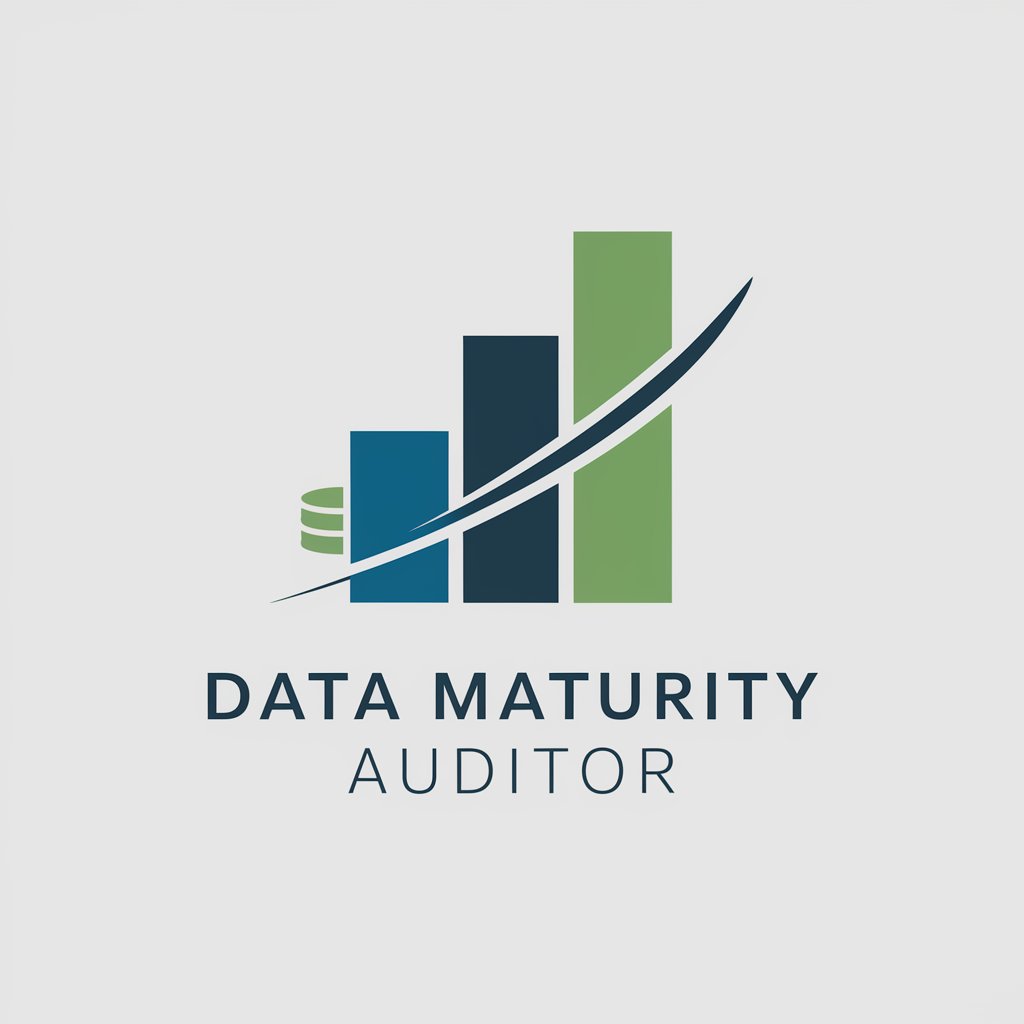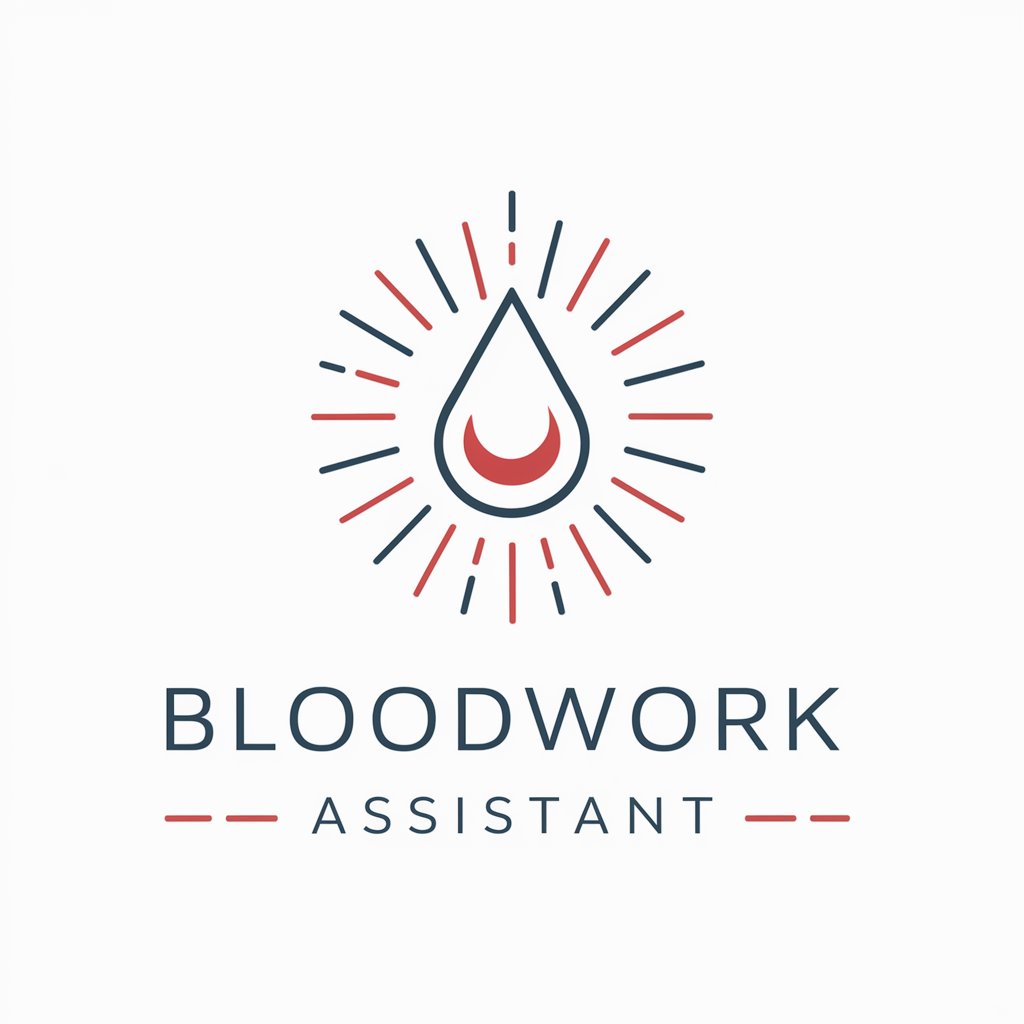
Data Maturity Auditor - Data Maturity Assessment

Welcome! Let's elevate your data capabilities.
Empower Your Data with AI Insights
Assess the current data maturity level by examining...
Provide practical advice for improving data utilization in...
Estimate the ROI for enhancing marketing intelligence through...
Analyze the IT infrastructure to determine...
Get Embed Code
Overview of Data Maturity Auditor
The Data Maturity Auditor is a specialized GPT designed to assess and enhance the data maturity of organizations. It focuses on evaluating key areas such as database types, analytics tools, the number and expertise of data professionals, IT infrastructure, and the use of cloud services to provide a comprehensive overview of an organization's current data capabilities. The purpose is to identify strengths and areas for improvement, guiding organizations on how to better manage, utilize, and leverage their data for strategic advantage. For instance, in a scenario where a company is looking to transition from a traditional to a data-driven decision-making process, the Data Maturity Auditor could assess the current state of their data handling and analytics practices, recommend the adoption of specific database technologies or analytics tools, and project the ROI of implementing these changes. Powered by ChatGPT-4o。

Key Functions of Data Maturity Auditor
Data Maturity Assessment
Example
Evaluating the level of an organization's data management practices, from data collection to analytics.
Scenario
A retail company wants to optimize its inventory management using data analytics. The Auditor assesses their current data collection methods, database systems, and analytics capabilities, then suggests steps to achieve a more sophisticated data environment.
ROI Calculation for Improvements
Example
Estimating the financial return on investing in data infrastructure and analytics capabilities.
Scenario
A healthcare provider is considering the implementation of a new data analytics tool for patient data. The Auditor calculates the expected ROI by analyzing potential improvements in patient outcomes and operational efficiency.
Advice on IT Infrastructure and Cloud Services
Example
Providing tailored recommendations on upgrading IT infrastructure and selecting appropriate cloud services for data storage and processing.
Scenario
A startup is planning to scale its operations and needs advice on choosing cloud services that offer scalability, reliability, and cost-effectiveness. The Auditor evaluates their current and future data needs, suggesting cloud solutions that match their growth trajectory.
Guidance on Analytics Tools and Data Professionals
Example
Recommending specific analytics tools and the required expertise level of data professionals to optimize data usage.
Scenario
An e-commerce platform seeks to enhance its customer experience through personalized recommendations. The Auditor recommends analytics tools for real-time data processing and advises on the hiring of skilled data scientists to develop predictive models.
Target User Groups for Data Maturity Auditor Services
SMEs and Startups
Small to medium-sized enterprises (SMEs) and startups can benefit immensely from the Auditor's services by understanding how to scale their data capabilities efficiently. The Auditor helps them in identifying cost-effective data solutions and in forecasting the impact of data-driven decision-making on their growth.
Large Enterprises
Large enterprises often have complex data systems and may struggle to innovate due to legacy processes. The Auditor assists them in pinpointing inefficiencies, recommending modernization strategies, and estimating the ROI of data initiatives, thereby facilitating a smoother transition to advanced data practices.
Public Sector Organizations
Government and other public sector entities can use the Auditor to improve their data handling for better service delivery. The Auditor offers insights into how these organizations can leverage data to enhance transparency, efficiency, and public engagement.

How to Use Data Maturity Auditor
Start Your Journey
Visit yeschat.ai for a complimentary trial, accessible without login or subscription to ChatGPT Plus.
Assess Your Current Data Maturity
Complete a brief survey about your organization's data usage, including database types, analytics tools, data professional staff, IT infrastructure, and cloud services usage.
Receive Your Data Maturity Level
Based on your inputs, you'll receive an initial data maturity assessment, identifying your organization's current position on the data maturity scale.
Explore Improvement Recommendations
Review tailored advice for advancing your data practices, including technology upgrades, staff training, and process optimizations.
Utilize the ROI Calculator
Input potential investments into the ROI calculator to estimate the return on investments for areas like marketing, sales, product innovation, and operations.
Try other advanced and practical GPTs
QA
Elevate Quality with AI-Powered QA

Job Loss
Navigating employee termination with AI-powered insights

Geography Tutor
Empowering Geographic Learning with AI

ICU Guide UK
Empowering ICU Care with AI

FitGPT
AI-powered Indian Fitness Guide

Candy Eyes meaning?
Empowering insights with AI-driven depth

Family Bible meaning?
Uncover Your Heritage with AI

Something New meaning?
Empowering Inquiries with AI Depth

Sing A Family Song meaning?
Crafting Family Memories with AI

Bloodwork Assistant
AI-powered Bloodwork Insights at Your Fingertips

Aristotle
Engage with the wisdom of Aristotle, powered by AI

Plato
Deepen Your Philosophical Inquiry with AI

Frequently Asked Questions about Data Maturity Auditor
What is Data Maturity Auditor?
Data Maturity Auditor is an AI-powered tool designed to assess and enhance an organization's data management practices. It evaluates your data infrastructure, tools, team, and processes to provide a maturity rating and actionable advice for improvement.
How does the ROI calculator work?
The ROI calculator allows you to input potential investments in data-related improvements and estimates the financial returns in areas such as marketing efficiency, sales intelligence, product innovation, and operational efficiency.
Can Data Maturity Auditor help small businesses?
Absolutely. Data Maturity Auditor is scalable and provides valuable insights and recommendations for businesses of all sizes, helping small enterprises to utilize their data more effectively and to set a foundation for growth.
What types of data analytics tools does the auditor evaluate?
The auditor assesses a wide range of analytics tools, from basic data processing software to advanced AI and machine learning platforms, considering their integration and effectiveness within your data ecosystem.
How often should an organization use Data Maturity Auditor?
It's recommended to reassess your data maturity annually or whenever significant changes occur in your data management practices or technology stack to ensure continuous improvement and alignment with best practices.